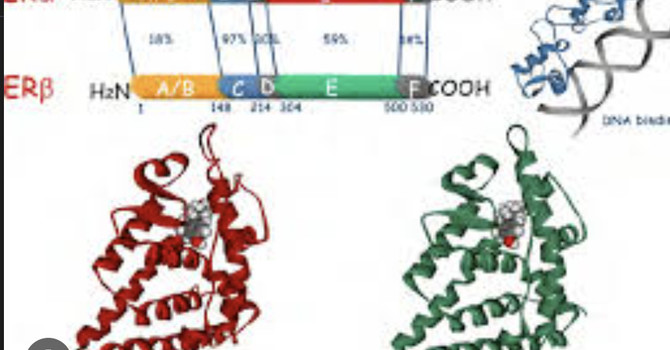
In an ideal world, every medical discipline would recognize the critical roles that estrogen, progesterone, and testosterone play in our bodies. These hormones are not limited to affecting reproductive health; they influence every single organ in our body. The decline of these hormones during perimenopause and menopause can have far-reaching impacts beyond the commonly known symptoms of hot flashes, brain fog and vaginal dryness.
Overlapping Symptoms and Misdiagnoses
The decline in hormone levels during these stages of life can lead to symptoms that overlap with other medical conditions, often leading patients down a path of unnecessary referrals and treatments. For instance:
- Joint and Muscle Pain: Conditions like low back pain, joint pain and shoulder pain are often attributed to orthopedic issues. However, these symptoms can be exacerbated by declining estrogen levels, which increase inflammatory processes in the body. When women receive adequate hormone replacement therapy (HRT), many of these symptoms can significantly improve or even disappear. Frozen shoulder, affecting up to 20% of menopausal women, is a prime example.
- Tinnitus: This condition, characterized by ringing in the ears, can also be linked to hormone decline. Patients often undergo numerous evaluations by ENT specialists and various scans, yet find no relief. Many patients have reported that their tinnitus symptoms resolved after several months of HRT. Approximately 10-15% of adults experience tinnitus, highlighting the potential widespread impact of hormonal changes.
- Non-Alcoholic Fatty Liver Disease (NAFLD): Hormonal changes during menopause can contribute to NAFLD. Elevated cholesterol, anemia, and insulin resistance are also commonly observed in women entering perimenopause and menopause. While diet and lifestyle modifications are often recommended, addressing the underlying hormone deficiency can be a critical component of treatment.
Overlooked Health Risks
The decline in hormone levels during menopause can lead to a variety of health risks that are often overlooked or misdiagnosed:
- Urinary Tract Issues: Postmenopausal women are at increased risk for urinary tract infections (UTIs) and urinary incontinence due to changes in the urinary tract and weakened pelvic floor muscles.
- Cognitive Decline: Memory lapses and difficulty concentrating are more common in postmenopausal women, who are at a higher risk for conditions like Alzheimer's disease compared to men of the same age.
- Oral Health Problems: Decreased estrogen levels can lead to dry mouth and an increased risk of cavities.
- Skin Changes: The loss of estrogen leads to decreased collagen production, resulting in thinner, drier, and less elastic skin.
- Metabolic Syndrome: Postmenopausal women are at increased risk for metabolic syndrome, a cluster of conditions including high blood pressure, high blood sugar, excess body fat around the waist, and abnormal cholesterol levels, which significantly increases the risk of heart disease, stroke, and type 2 diabetes.
The Knowledge Gap in Healthcare
Despite the significant impact of hormone decline on various health conditions, there remains a gap of knowledge and treatment among healthcare providers. This gap can be traced back to the 2002 Women's Health Initiative (WHI) study, which erroneously reported an increased risk in breast cancer due to HRT, and failed to highlight the many benefits. The media coverage of the WHI findings was skewed, presenting a fear-based narrative that led to a dramatic decline in HRT usage. .Before the WHI study, up to 40% of menopausal women were treated with HRT. Today, that number is closer to 8%. Over the past two decades, residency programs have reduced or eliminated training on menopause, with most OB/GYN residencies dedicating only an hour to this crucial topic. As a result, only about 30% of OB/GYNs feel comfortable treating or discussing menopause, and this number is even lower for other specialties.
A Call to Action
It is time for a concerted effort across all medical disciplines to understand menopause and the role of hormone replacement therapy. By doing so, healthcare providers can better recognize symptoms, guide patients towards appropriate care, and prevent unnecessary and costly medical evaluations. The message is clear: menopause is a natural phase of life that can be managed effectively with the right knowledge and treatment. It is crucial for all doctors to be educated on this topic to provide comprehensive care and improve the quality of life for their patients.
The Role of Preventative Care
Hormone replacement therapy is not just about alleviating symptoms; it plays a crucial role in preventative care. Proper HRT can help prevent serious diseases such as:
- Heart Disease: The number one killer of women. Estrogen has a protective effect on the cardiovascular system.
- Dementia: Including Alzheimer's disease, where women are at a higher risk compared to men.
- Osteoporosis: Estrogen helps maintain bone density, reducing the risk of fractures.
- Sarcopenia: The loss of muscle mass and strength, which can be mitigated with appropriate hormone levels.
Empowering Patients
While the medical community needs to improve its education on menopause, patients must also advocate for their health. Women, who make up over 50% of the population, need to seek out doctors who understand and are willing to treat hormone-related issues. Despite outdated views and fear-based narratives that have vilified hormone replacement therapy, proper education and advocacy can empower women to take control of their health.
As the medical establishment may take years to catch up, patients cannot afford to wait. They must educate themselves, advocate for their health, and find physicians with expertise in perimenopause and menopause. This may require stepping outside the traditional medical model to receive appropriate care.
Understanding the broad impact of hormones is essential for all medical disciplines. Improved education on menopause and hormone replacement therapy will enable healthcare providers to offer better care, reduce unnecessary treatments, and enhance patients' quality of life. As our understanding of hormonal changes advances, it's crucial for medical professionals across all specialties to stay informed and address the diverse needs of menopausal and postmenopausal women.
Dr. Anat Sapan MD, specializing in peri/menopause care, advocates for a personalized approach combining Bioidentical Hormone Replacement Therapy with lifestyle strategies. Her telemedicine services in California, Florida, Illinois and New York. I aim to help women overcome menopausal symptoms and enhance their quality of life.

Anat Sapan, MD
Contact Me



